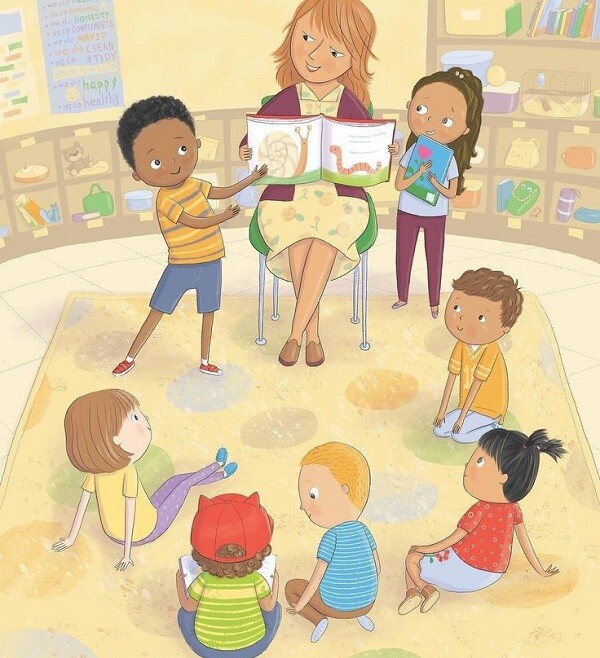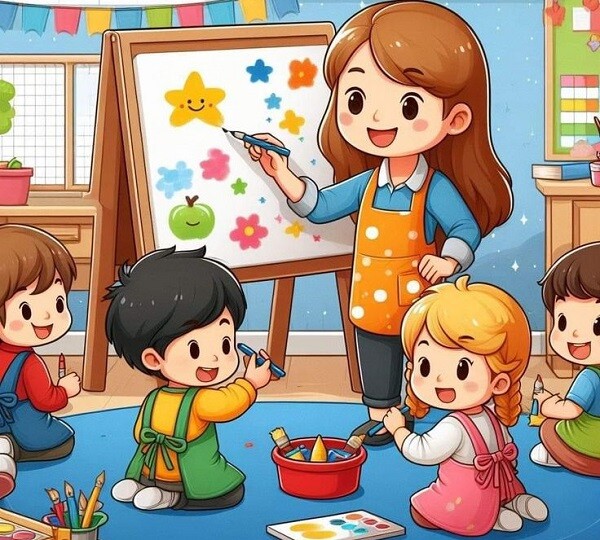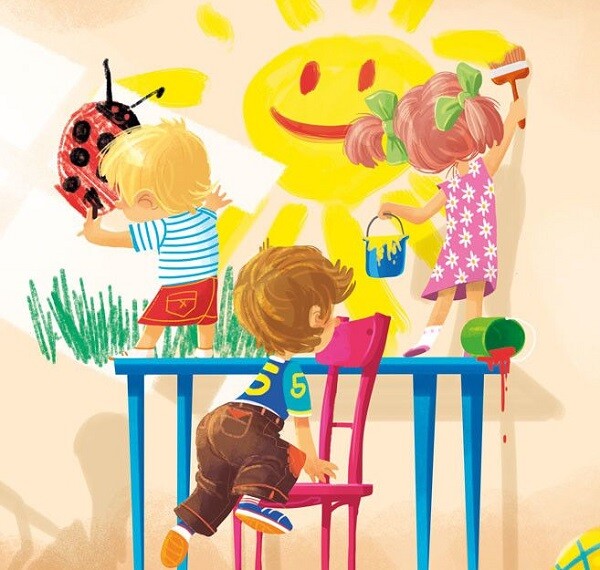There is no substitute for family education as the foundation for a child’s growth.
If parents adhere to and practice these five points during their child’s three years in kindergarten, their child will benefit from them throughout their life.


Develop Social Skills
Kindergarten provides children with their first experience of social interaction within a small community.
From a psychological perspective on child development, the kindergarten years are a crucial stage for the rapid growth of social communication needs.
Through interactions with peers, children gradually master sharing, cooperation, and conflict resolution skills. For instance, during group play, children learn to take turns on the slide, which instills the seeds of rule-following and a cooperative spirit.
Parents should actively create a social environment and encourage their children to participate in group activities organized by the kindergarten, such as crafts, games, and drawing.
By dividing tasks and working together, children learn the value of teamwork, which lays a strong foundation for building positive relationships and enhancing emotional intelligence in the future.

Foster Self-Autonomy
The kindergarten years are crucial for developing self-awareness and autonomy in children.
Renowned educator Montessori emphasized that children have an innate drive for independence, and adults should grant them freedom with appropriate support.
Starting with basic life skills such as dressing, handwashing, and eating, each time a child accomplishes a task, they affirm their capabilities.
When a child successfully dresses themselves, they experience a sense of achievement, and their confidence gradually increases.
Parents should be patient and provide guidance and encouragement instead of worrying about their child’s performance. For example, when teaching shoelace-tying, demonstrate the steps and allow ample time for practice, fostering self-reliance to prepare them for the future.

Foster Self-Autonomy

Nurture Imagination and Creativity
Kindergarteners are at their most imaginative and creatively active.
Scientific research on the brain shows that neural connections in young children are highly active and plastic, providing a physiological basis for their wild imagination.
In their artwork, children may draw a red sky, which is not a cognitive error but a unique expression of their imagination.
Provide children with a variety of materials, such as colored paper, scissors, and glue, and allow them to create collages or encourage them to make dolls from old clothes. Through these activities, children can transcend conventional thinking and create unique masterpieces.
Cultivating this innovative mindset will enable children to approach problems from different angles and find creative solutions to complex issues in the future.

Nurture Imagination and Creativity

Enhance Language Skills
The three years of kindergarten are a golden period for the rapid development of language skills.
Children continue to absorb language rules and enhance their expressive abilities through interactions with others.
Parents should communicate more with their children in daily life.
For example, recap the day’s kindergarten experiences each night. During these conversations, children enrich their vocabulary and learn to structure their thoughts more systematically.
Additionally, parents should actively respond to their children’s speech, helping them improve their accuracy and fluency in understanding and expressing language through questions and guidance, thus laying the foundation for effective communication in future academic and professional pursuits.

Respect Children’s Curiosity
Looking back at history, many of humanity’s greatest inventions stemmed from curiosity.
Newton’s curiosity about an apple led him to discover gravity, Watt’s curiosity about steam escaping from a kettle resulted in improvements to the steam engine, and Galileo’s curiosity about a swinging lamp inspired his discovery of the pendulum.
Children are inherently curious about the world around them, and this drives their exploration and knowledge acquisition.
The secret to nurturing their curiosity is for parents to view issues from their child’s cognitive perspective and refrain from impatience with their questions. Many queries that may seem simple to adults are entirely new concepts for children.

Respect Children’s Curiosity
Satisfy their curiosity by taking them to science and technology museums, where they can marvel at scientific phenomena, or to zoos, where they can observe and learn about animal habits and behaviors.
This continuous process of discovery helps children maintain their enthusiasm for learning and fosters their ability to proactively seek new knowledge, enriching their intellectual pursuits in the future.
The Lonely Child in Preschool: 4 Overlooked Signs by Parents
The kindergarten environment is a vibrant and dynamic world where young minds embark on a journey of learning and exploration. It is a place where children are not just students but active participants in their own educational adventure. They forge friendships, uncover the wonders of the world around them, and develop a lifelong love of learning. This unique setting lays the foundation for their academic and social growth, nurturing their natural curiosity and fostering their overall development.
“When Your Child is Being Bullied, Don’t Teach Them to Fight Back or Tattle: Try These Smart Parenting Strategies Instead.”
“When your child is being bullied, it’s natural to feel upset and protective. However, our experts advise that parents should maintain a calm, thoughtful, and patient demeanor. Reacting with anger or aggression can often escalate the situation and cause further harm to your child’s well-being. Instead, channel your energy into finding constructive solutions. Educate yourself on bullying, its impact, and effective strategies to address it. By staying composed and proactive, you empower yourself to support your child effectively through this challenging time.”






































